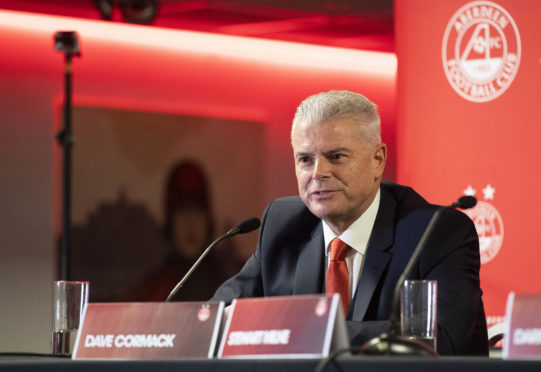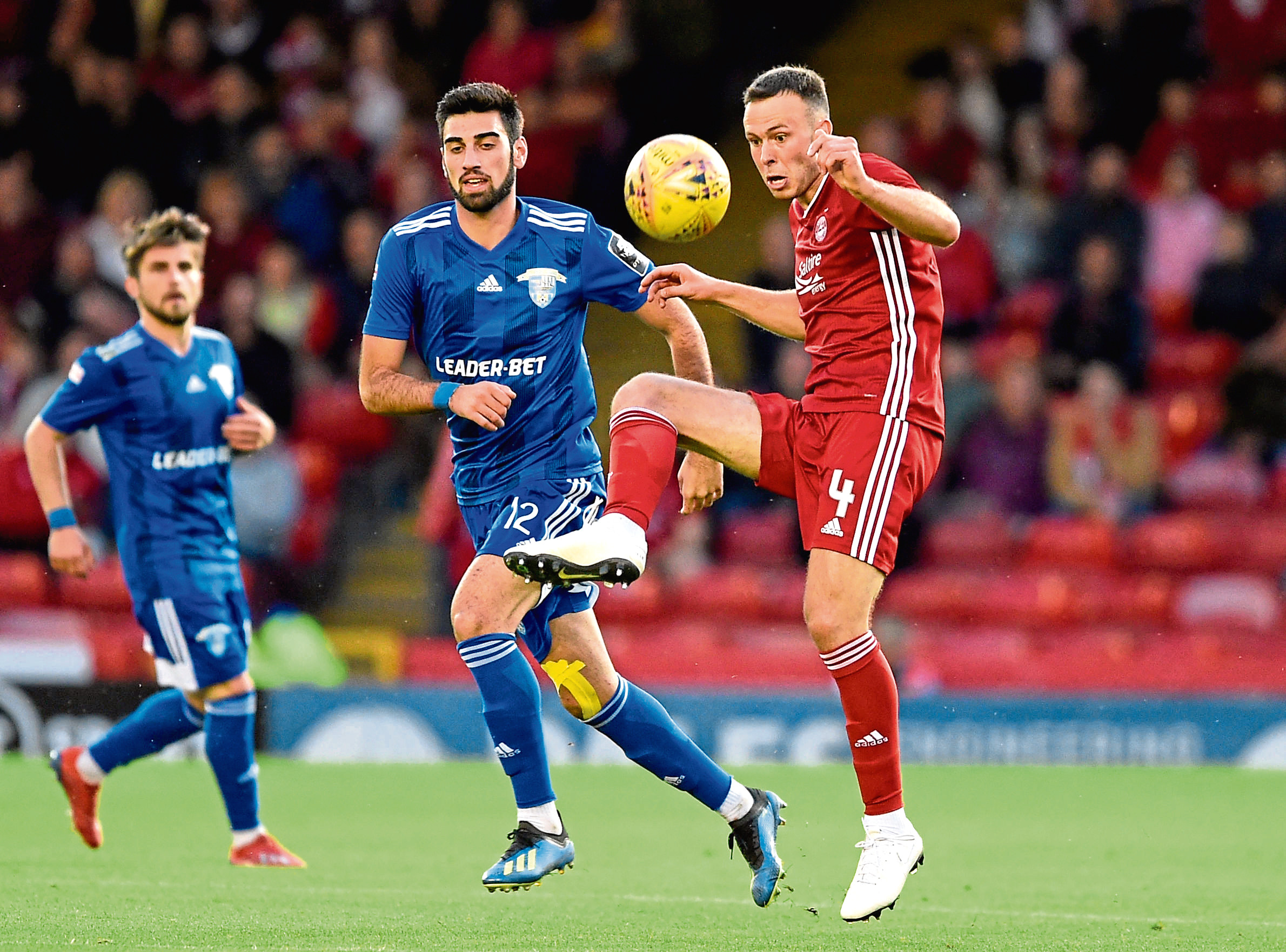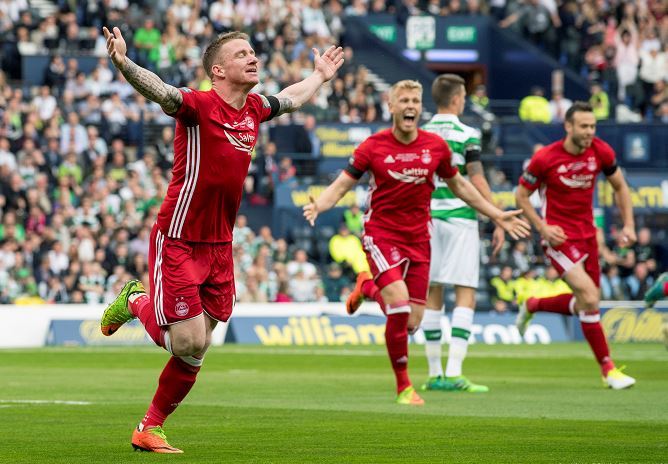Hindsight is 20-20 as the saying goes.
But Aberdeen’s prudent plans for the future have become a double-edged sword due to the coronavirus, with the security of having the building blocks of the playing squad in place now weighing heavily as a millstone around the neck.
Cast your mind back five months and Dons chairman Dave Cormack was hailing the strong position his club was in under Derek McInnes.
With the majority of players under contract until the summer of 2021, at least the Dons were looking in good shape as they chased qualification for the Europa League for the seventh season in a row and Scottish Cup glory.
Last season was one of rebuilding in many ways for the Dons, but the foundations had been put in place for the next couple of years irrespective of how the campaign ended.
That it was brought to a conclusion prematurely means the Dons will represent Scottish football in the Europa League once more after finishing fourth.
But we’ll never really know whether the Dons were a top-three team, while the Scottish Cup is delicately poised at the semi-final stage with McInnes and his players waiting to learn when they will face holders and quadruple-treble chasing Celtic in the last four at Hampden.
Right now though, those issues seem like moot points as the coronavirus has ripped through Scottish football.
The Premiership is due to return on August 1, but with no fans allowed inside a stadium. Scottish football does not have the benefit of a billion-pound television deal like its neighbours in England.
No, it’s far more meagre up here and as a result every club relies on the paying punter through the turnstiles for income. Take that away and you have a problem which is fast becoming a major challenge for every club.
Make no mistake the struggle is real for the Dons and every other Scottish club as a result. Hearts implemented wage cuts last month. Earlier this week Hibs announced plans to follow suit. Yesterday, the Dons added their name to a list which will most certainly grow in the weeks ahead.
The Aberdeen chairman has tried all he can to prevent this from happening, having agreed wage deferrals with the senior staff and playing operation of up to 30% for four months back in April.
A £2 million investment from the board of directors was also made to try to bridge the £5 million shortfall from no games being played.
It was necessary though in the belief by September life would be back to normal.
However, as we pass the halfway point of June it is also clear, while the country moves into phase two of the route map out of lockdown as described by the Scottish Government, the road to recovery remains a long and winding one.
Fans are not expected to be back at Pittodrie or any other ground for that matter until the New Year.
That is 10 months of now money through the turnstiles. Celtic can maybe sustain that drop of income, but it is highly unlikely any other club can.
That is why the Dons chairman has reached the position of having to take further action – as unpalatable as it may be.
No-one believes for a minute he wants to implement wage cuts at the club, but needs must and Aberdeen’s need is pressing.
That strong squad he boasted about five months ago needs to be paid for, as does every other member of staff at the club.
The coronavirus has cost Aberdeen the chance to bring Greg Leigh on board. It has also slowed the efforts to bring Jonny Hayes back to the club.
Talks are continuing between the club and the former Don about whether it is possible to bring him back and some creative accounting is going to be required to make it happen.
But Hayes can wait. Those already on the books at the club, whether they were football boots or work in the office, are Cormack’s pressing concern.
The Aberdeen chairman sees himself as a custodian of the club of the city. He likes to say it is not his club, but our club.
But the burden has fallen to him to plot his own route map to recovery and it has become clear it is not going to be an easy task.


